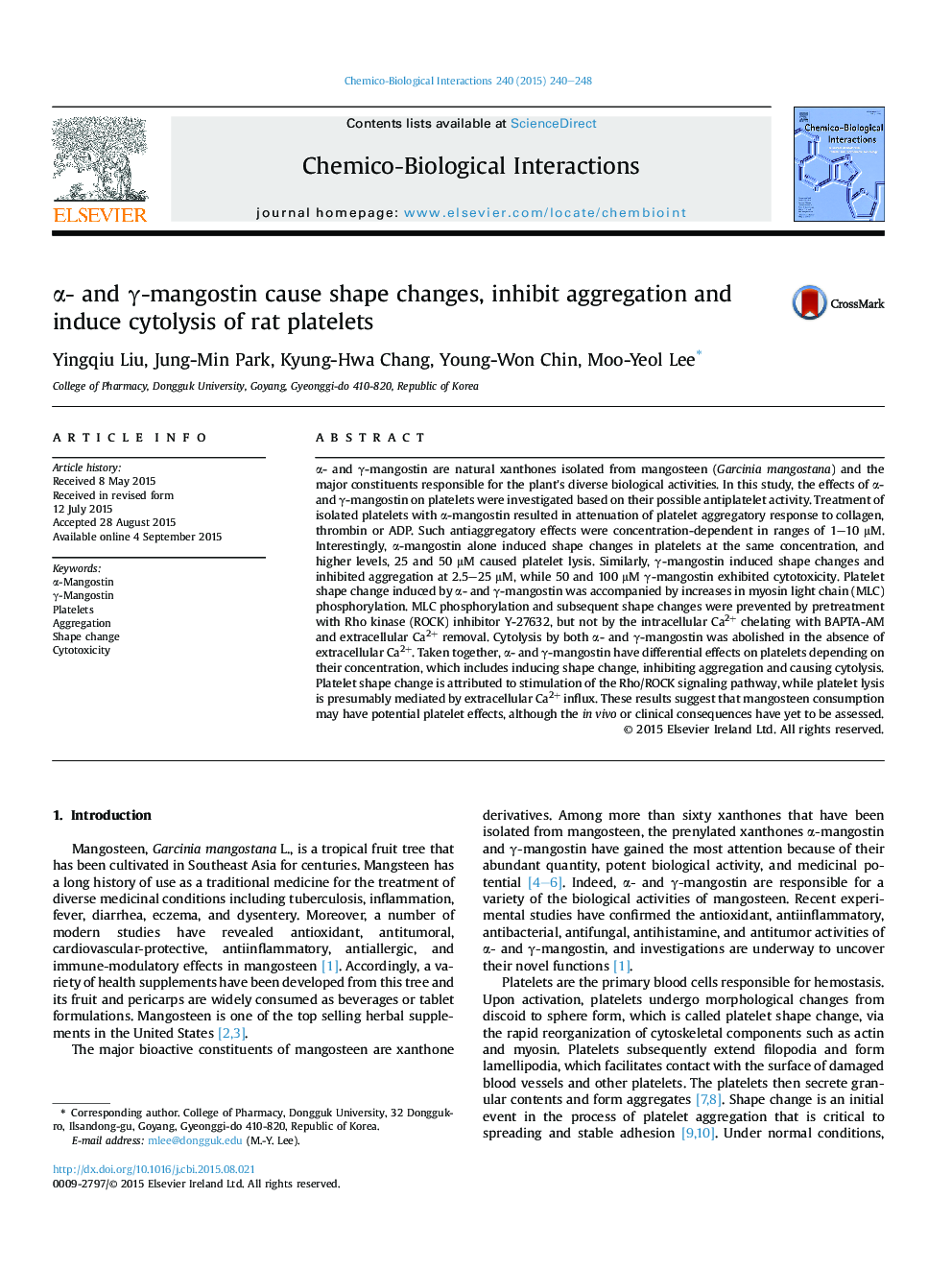| Article ID | Journal | Published Year | Pages | File Type |
|---|---|---|---|---|
| 2580124 | Chemico-Biological Interactions | 2015 | 9 Pages |
•α- and γ-mangostin have differential effects on platelets depending on concentration.•Such effects include inducing shape change, inhibiting aggregation and causing lysis.•Shape change by mangostin is attributed to stimulation of Rho/ROCK signaling pathway.•Mangostin-induced cytolysis is mediated by extracellular Ca2+ influx.
α- and γ-mangostin are natural xanthones isolated from mangosteen (Garcinia mangostana) and the major constituents responsible for the plant's diverse biological activities. In this study, the effects of α- and γ-mangostin on platelets were investigated based on their possible antiplatelet activity. Treatment of isolated platelets with α-mangostin resulted in attenuation of platelet aggregatory response to collagen, thrombin or ADP. Such antiaggregatory effects were concentration-dependent in ranges of 1–10 μM. Interestingly, α-mangostin alone induced shape changes in platelets at the same concentration, and higher levels, 25 and 50 μM caused platelet lysis. Similarly, γ-mangostin induced shape changes and inhibited aggregation at 2.5–25 μM, while 50 and 100 μM γ-mangostin exhibited cytotoxicity. Platelet shape change induced by α- and γ-mangostin was accompanied by increases in myosin light chain (MLC) phosphorylation. MLC phosphorylation and subsequent shape changes were prevented by pretreatment with Rho kinase (ROCK) inhibitor Y-27632, but not by the intracellular Ca2+ chelating with BAPTA-AM and extracellular Ca2+ removal. Cytolysis by both α- and γ-mangostin was abolished in the absence of extracellular Ca2+. Taken together, α- and γ-mangostin have differential effects on platelets depending on their concentration, which includes inducing shape change, inhibiting aggregation and causing cytolysis. Platelet shape change is attributed to stimulation of the Rho/ROCK signaling pathway, while platelet lysis is presumably mediated by extracellular Ca2+ influx. These results suggest that mangosteen consumption may have potential platelet effects, although the in vivo or clinical consequences have yet to be assessed.
